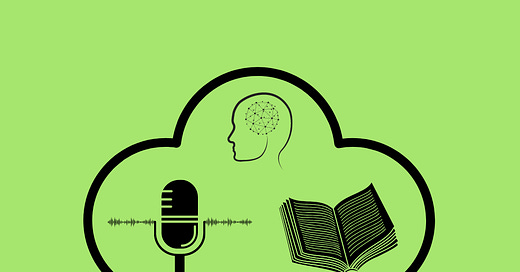Enjoy this week’s curated list of articles, podcasts, and more from the web.
“The Science Behind Holding Your Identity(s) Loosely”
Takeaway: The article covers two key concepts: Psychological Flexibility and Self-Complexity.
On Psychological Flexibility, “psychological flexibility refers to how easily we adapt to life’s many curveballs, and maintain a sense of balance without losing sight of our values or becoming too rigidly locked into any single self-concept. A core element of psychological flexibility is self as context, which explains that we should be aware of our experiences without becoming rigidly attached to them.”
On Self-Complexity, “Self-complexity measures how diverse someone perceives their identity as being. Studies show that people who score high in self-complexity—that is, they do not rigidly define themselves in any one way—are less prone to depression, perceived stress, mood swings, and low self-worth. It follows that clinging too rigidly to any single identity, particularly for long periods of time, is at best limiting, and at worst harmful.”
With clients, I often talk about this concept as Diversification of Self-Worth. Like a diverse financial portfolio, you protect yourself from any one investment tanking your life-savings. By spreading your self-worth across a variety of activities and areas of your life, you protect yourself in the event that any of those are taken from you in either a short (i.e. injury) or long-term (i.e. aging) capacity.
“How To Fail At Almost Everything and Still Win Big”
Takeaway: There are secrets contained in our failures, that if captured, can lead to a stepping stone of wins in the future.
The author of this article shares ten insights from the book of the same name by Scott Adams. (Creator of the Dilbert comic strip.)
A few that resonated with me (with some bias):
Psychology matters. You should probably learn the basics.
Systems beat goals. Doing something everyday is a system, waiting to do it in the future is a goal.
Don’t withhold praise. As children, we are constantly bombarded with a mix of criticism and praise that help us find our place in the world. As adults, we can go weeks, even months, experiencing criticism without an ounce of genuine praise. If you see people doing good things, speak up.
“How To Combat Negative Thinking”
Takeaway: Situations themselves do not cause negative feelings, it is our interpretation of them. Positive emotions can be triggered by telling ourselves alternative stories. These question can help you write different stories:
What’s the evidence that your thought is true?
If you’re wrong, what’s another way of looking at the situation?
If you’re right, what could you do about the situation?
What advice would you give to a friend in the same situation?
What should you do now?
“The Benefits of Exercise on Vacation”
Takeaway: You can decide that vacation is a time to forgo all parts of your daily life. Alternatively, you may decide that you feel your best after a good workout, and what is vacation except a time to truly feel your best? This article makes the case for keeping one tony habit of your normal life even while traveling and getting some quality R&R.
Either way, you can’t go wrong.




